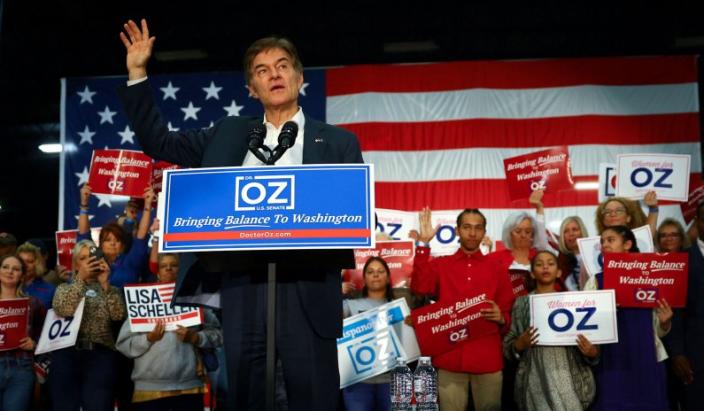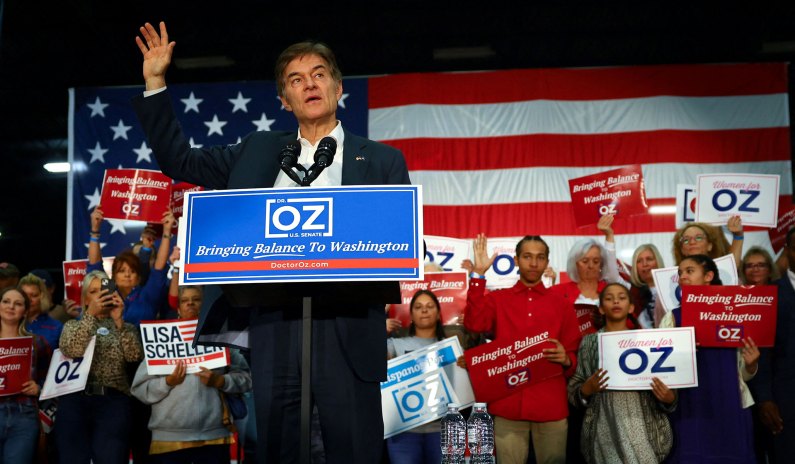
The 2022 midterm elections had all the makings of a red wave, but four key issues held back Republicans: according to GOP researcher Wes Anderson.
Anderson told reporters Monday that Republicans failed to see predicted election night victories because the party failed to capture the independent vote, failed to offer a value proposition to voters, failed to challenge Democrats’ abortion messages and lacked resources.
In summarizing the results of a post-election Heritage Action national survey conducted between 16 and 20 November, Anderson said the ingredients for a wave were all there: A majority of respondents said the country was on the wrong track (68 percent) and President Biden had a 53 percent disapproval rating nationally. Among independents, 44 percent approved of the president’s work, while 52 percent disapproved. Fifty-one percent of voters in Senate battlefield states said they disapproved, while 48 percent said they approved.
“The party in power should feel the impact in a significant way,” he said. “They did not.”
A majority of respondents trusted Republicans over Democrats to address three key issues: the economy, immigration and crime. A majority of independents also trusted Republicans over Democrats to address the three issues.
But Anderson said Republicans lost voters because of “no plan, no agenda, no hint of what they are going to do.”
“In fact, in the Senate, they bragged that they had no such thing,” he said.
The poll found that 27 percent of independents didn’t know what the Republican message was, compared to 17 percent who said the same of Democrats.
Anderson called the 2022 midterms the “Seinfeld election’ because it was an ‘election over nothing’.
He noted that the race in the Wisconsin Senate was the exception to the rule, where allies of Republican Senator Ron Johnson spent a significant amount of money creating a unified, disciplined message against Mandela Barnes’ crime record.
Fifty-two percent of independents disagreed with the statement that “federal government spending by President Biden and Democrats in Congress is the main reason why we experience high inflation in our economy.” Forty-two percent agreed and 4 percent said they didn’t know or declined to answer.
The loss of independent voters and highly educated voters “is starting to put together the framework for how you lose some races close by, especially in battlefield states,” he said.
Meanwhile, Democrats and allies spent as much as $450 million on abortion ads, according to the analysis conducted on behalf of Heritage Action. Ninety-five percent of those ads attacked the Republican Party or Republican candidates.
Republicans were way behind on abortion messages, with the GOP and its allies spending just $10 million to fight back against the Democrats’ abortion messages. Abortion was the only issue respondents said they trusted Democrats to address Republicans, 49 percent to 39 percent.
Of those who said abortion was important to their vote, 38 percent voted Republican and 58 percent voted Democrat. “I can say with empirical facts that we have ceded almost all ground on abortion to the Democrats,” he said. “We didn’t get into the fray.”
Democrats also spent far more than Republicans in the key battlefield states of Arizona, Florida, Georgia, Nevada, New Hampshire, North Carolina, Ohio, Pennsylvania and Wisconsin, where Democrats collectively spend $703 million and Republicans only $259 million.
Good news for Republicans: 51 percent of Hispanic respondents said they voted for the Republican candidate for Senate in their state, while 43 percent said they voted Democrat and 6 percent said otherwise.
Anderson said that as a pollster of 20 years, this survey was the first post-election poll he’s ever seen nationally where Republicans won the Hispanic vote.
“That has been underreported in an otherwise very disappointing year for us and bodes well for the future of conservatives in general, especially the Republican Party,” he said.

